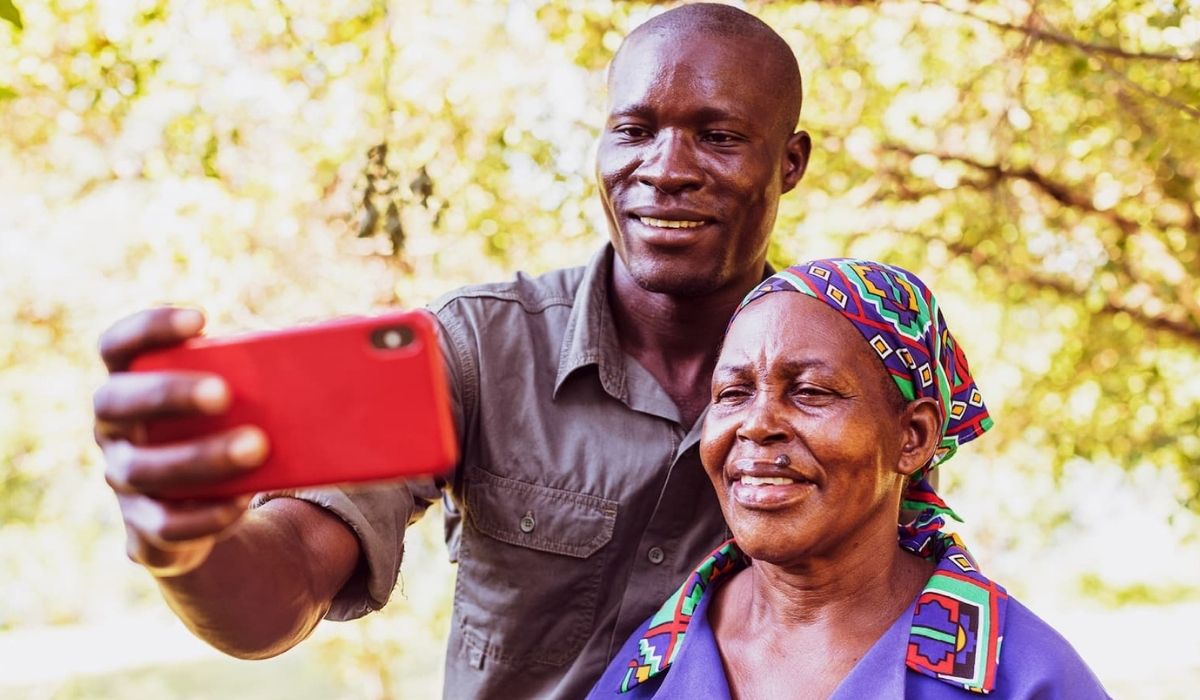Sitholize Mdlalose, the Managing Director of Vodacom Tanzania talks of the digital gap in Tanzania and how Vodacom is working towards a future with better digital connectivity.
Throughout history, advances in technology have always led to significant social and economic gains for the societies concerned. Never has this been more apparent than with the accelerating pace of technological advancement we have seen over the last century.
With the introduction of electronics, more technologies and applications have arisen leading up to the present world that is interconnected by digital networks. The benefits of such a system were well demonstrated during the initial COVID outbreak where, amid uncertainty, many entrepreneurs and traders took to various social media platforms such as Instagram and Facebook to reach their customers. A significant number saw their businesses soar at this time. We witnessed small and medium enterprises for instance –used clothe sellers- advertise their wares online; petty traders source stock digitally; food sellers reach more clients near and far, and all using newer mapping technology that increased access to markets and improved sourcing.
Entrepreneurs were not the only beneficiaries of online connectivity either; we saw increased demand for online education delivery, more uses of conferencing facilities for both day-to-day office work, and wider seminar and training.
This ever-evolving supply of technology gives rise to life enhancing opportunities. The more technology penetrates within our community, the more we can expect everyday problems to be resolved by its use. One fascinating example is telemedicine where patients need not travel vast distances to reach doctors, rather get to a connected center and get consultations and, in some cases, even operations performed remotely.
We also see more sophisticated methods of gathering data and rapid developments in how that data is used to make accurate models and predictions for everything ranging from weather patterns to consumer behavior and population growth. All these developments will have a significant impact on all our social and economic activities. A tech company like Vodacom has poised itself as a partner in innovation having developed platforms that respond to consumer needs in agriculture, education, health as well as youth empowerment.
However, we must also be mindful that we live in a world that already has divisions along with gender, economic and social lines between haves and have-nots. These rapid developments in digital technologies threaten to exacerbate these divisions if we do not take steps to make sure we leave no one behind while we also work to ensure that we are not left behind in the new global digital economy.
This digital gap manifests itself in different ways. There are places in the country where residents struggle to even make a voice call. There are members of the population who do not have access to the internet, even when the network is available some lack the devices and/or the skills to optimally utilize them so they can make the best of the opportunities that digital connectivity offers. Closing such gaps is a responsibility of not just one but multiple stakeholders. Policy makers, private actors, consumers, development partners are among those who continue to shine a light and take progressive action towards closing the gap and we not let up now.
Actors from within the private sector, like Mobile Network Operators, continue to play their part on this front by constantly rolling out Network Infrastructure across the population as well as introducing innovative products and services that truly impacts people’s lives. On their part the government has provided an enabling environment that has seen such actors make a positive contribution to all. Nevertheless, concerted efforts to accelerate this progress to even greater heights are necessary so that no one is left behind.
The government has made commitments towards digitization. Firstly, through its national ICT plans for the next few years which includes targets for broadband coverage, rural electrification as well as increased research and development. We have seen concrete actions taken towards these targets. Yet, and in spite of acceleration, actual prioritizing of technology and digitization in strategic plans beyond policy making can hasten a developing or middle-income region towards achieving their development targets. As for the private sector, more coordination and meaningful collaboration amongst stakeholders can see a thriving digitally empowered nation.
It is my belief that the only way to approach digitization is holistic if we are to achieve the maximum benefits for the larger number of people.
Sitholize Mdlalose, Managing Director, Vodacom Tanzania










